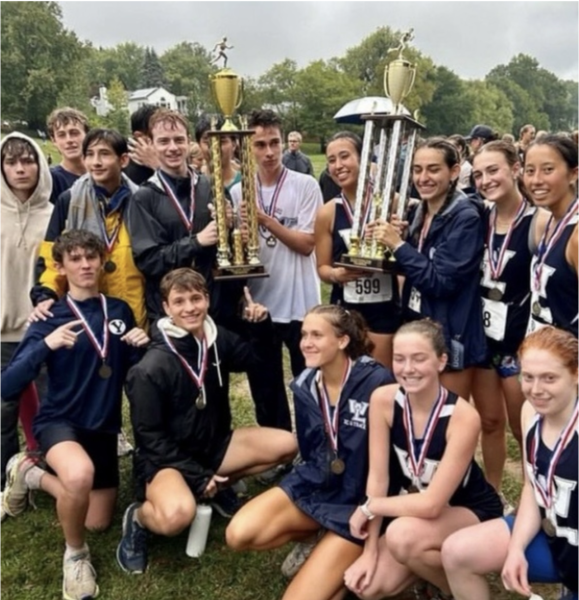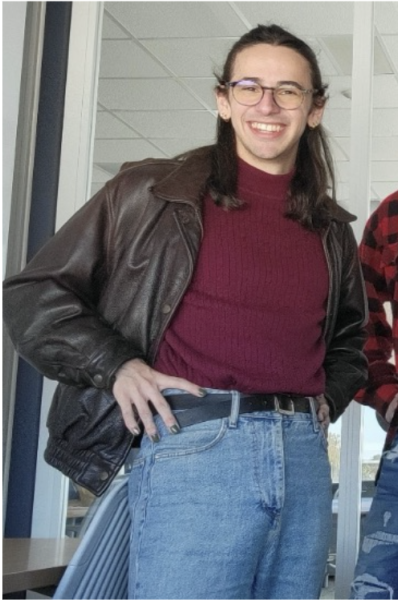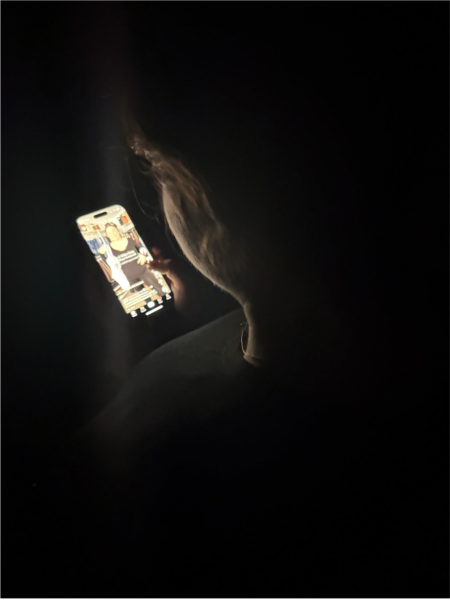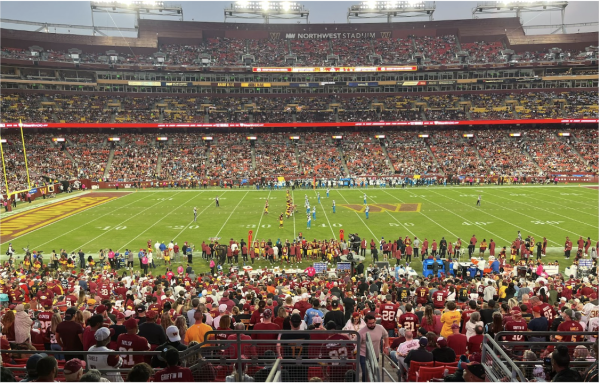Victims of Hurricane Katrina offer advice for dealing with COVID-19
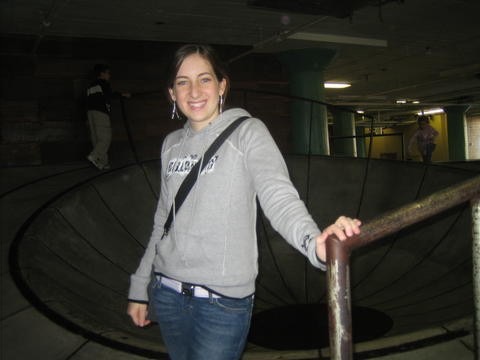
Dana Walkenhorst, at the time a senior, tours the “city museum” in St. Louis with a friend from New Orleans who was visiting. Walkenhorst and her younger brother lived with their grandpa in St. Louis for the first semester of Walkenhorst’s senior year.
The closures caused by COVID-19 have left many students, especially seniors, blindsided by their loss of special events. Students have lost their prom, in-person graduation, spring dance and spring sports. In many ways, this is an unprecedented time. However, students today are not the first to lose their way of life so abruptly in recent history. Take Dana Walkenhorst, who was a high school senior at the time of Hurricane Katrina and missed the first four months of her senior year. For Walkenhorst and her fellow New Orleanians who lived through Katrina in 2005, many parallels can be drawn from their experience to the current pandemic.
“There was definitely some bitterness about it happening our senior year,” Walkenhorst said. “There were so many special events that we were missing out on: homecoming dance, spirit week, etc. I maybe didn’t care so much about them before, but now that we weren’t able to do them, it made me sad. It sounds corny, but it’s true that you don’t know what you’ve got until it’s gone.”
Dr. Maureen Shuh, who was an associate professor at Loyola University New Orleans at the time, says she can see similarities in how people and the government have reacted.
“[In both cases, I have seen that] at a time when you need a bigger entity – the federal government – to take charge, it does not,” Shuh said. “I see people reacting the same way: mostly for their own benefit and not altruistically. I see people in denial. I see the first responders being placed in harm’s way, and citizens taking it for granted. I see businesses closing down and terminating their employees without weighing all options. For universities, if students will not continue to pay the high tuition for online learning in the summer – suppose this continues in the fall? – then I predict the same terminations at universities of faculty and staff that I saw during Katrina.”
Despite the similarities between the catastrophes, Shuh says it’s important to remember the differences.
“COVID-19 diverges from Katrina in a notable way,” Shuh said. “This time, everyone is experiencing it for themselves. I’m now having people [express empathy with] how traumatic Katrina must have been. COVID-19 is so much worse. With Katrina, we were able to leave, and we were able to find open doors with friends and families. [Now] there’s nowhere to go and no one can really help each of us.”
For Shuh and many others like her who were older at the time, the memory of Hurricane Katrina is vivid and emotional, as this pandemic may be for many now. However, for some of those who were younger at the time, the reaction was very different. For instance, during the hurricane, when she was almost 11 years old, Corinne Duplantis’ family fled from New Orleans to Loranger, Louisiana. The family slept in one room with 16 family members to conserve the two air conditioning units the family was running on generators. Despite the difficult circumstances, Duplantis remembers the experience as almost fun and exciting, like a sleepover.
“It’s important to be open about what’s happening,” Duplantis said. “Try to explain [to younger kids] what’s going on, why things are different, why [the pandemic] isn’t going to end next week.”
At the time, Duplantis’ brother was 13 years old and was uprooted from New Orleans and attended a new school alongside her.
“Having that companionship was helpful,” Duplantis said. “[My advice for those with younger siblings during this pandemic is to] be a little more forgiving [to your siblings]. We were together, and that was important.”
The aftermath of Hurricane Katrina was a long process. “Many students weren’t able to return, but those who did all had the same sense of appreciation,” said Walkenhorst. “Our shared experience brought us closer. My school was never very clique-y in the first place, but after Katrina, everyone got along. To this day I remain very close with my high school friends and in touch with most people I went to high school with.”
Dana’s younger brother, Will Walkenhorst, agreed that the disaster had a unifying impact on the students that returned. He said that the same sense of unity could be happening currently, as well.
“There’s a possibility for [that unity] to happen again,” Will Walkenhorst said. “For my girlfriend and I, for my family and friends, everyone is becoming more social. Using Zoom calls, we’re talking more than we normally would.”
Along with a sense of unity due to a shared experience, Katherine Bricker, whose whole family is from New Orleans, said people’s mindsets had to change during and after the disaster.
“[During Hurricane Katrina,] most people felt like they had to rely on themselves and their neighbors to really survive, which is kind of relatable with the current COVID-19 situation and Trump’s leadership,” Bricker said. “I think that because of all of this, the people that did come back [to New Orleans] have a very strong sense of community and the city has a lot of pride in its ability to rebuild.”
After New Orleans rebuilt, Will Walkenhorst remembers having interesting discussions with other classmates about how their families were impacted. Bricker still gets emotional remembering the first post-Katrina Saints football game. She said that New Orleanians love New Orleans more than she has seen from other cities, and she believes that is in large part because of the unity that comes from going through such a dramatic event.
“My advice would be to not despair,” Dana Walkenhorst said. “This could seem like a huge horrific event in your life, but it will pass and there may even be some silver linings. Take this time to do things you wouldn’t normally have time to do, and to bond with your family. And when your life returns to ‘normal,’ remember to appreciate the things you took for granted before.”


